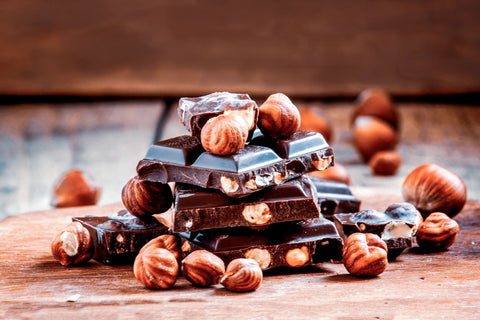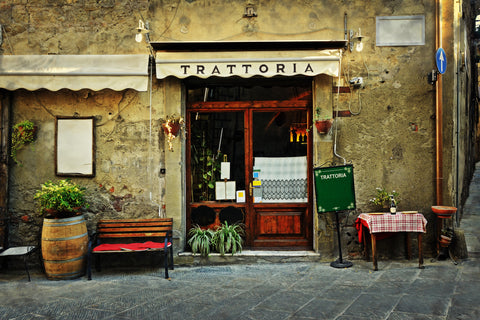Italians love soccer, pasta and chocolate! Many admit to consuming chocolate every day. Yet, from Lombardia to Sicily, no true Italian can resist this sweet sensation. For us, every occasion calls for a bite of chocolate.
THERE IS ALWAYS TIME FOR CHOCOLATE
No matter the holiday – Christmas, Easter, Valentine’s Day – we celebrate it with chocolate! In the winter, we drink ‘cioccolata calda,’ which is our spin on hot chocolate. In the warmer months, we love chocolate flavored gelato such as ‘Bacio’ which means ‘kiss’ and is the perfect way to describe the combination of chocolate and hazelnut that goes into every bite. We have countless cookie and cakes recipes with chocolate that are commonly enjoyed. However, not many people know that we also use it with savory dishes to create original main courses. For example, we add it to pasta, polenta and even to some meat dishes.
WE MAY HAVE PERFECTED THE TASTE OF CHOCOLATE, BUT IT WAS FIRST FOUND IN THE AMERICAS
Although we are big lovers, the long history of chocolate didn’t start in our country. Cocoa arrived in Europe from the Americas around 1500, thanks to Christopher Columbus or the Spanish conquistador Hernan Cortes, as many think. This treasure was first introduced in Spain and, in the beginning, many found it difficult to understand and appreciate these beans because the taste was too bitter. Then someone had the brilliant idea to add sugar to the cocoa, and so the history of chocolate was changed forever. Chocolate made its way to Italy after a merchant from Florence named Antonio Carletti discovered it in Spain. From there, this scrumptious phenomenon spread quickly to many cities across Italy. Turin, the main city in Piemonte, loved chocolate the most. Well known in the world for the FIAT auto industry, Turin became the house of chocolate. Around 1800, the people of Turn invented a machine able to mix cocoa paste with sugar and vanilla to produce chocolate tablets like we eat today. Perhaps Turin’s most significant contributions to the chocolate industry were the discoveries of chocolate spread and hot chocolate drink.
As popularity grew and cocoa became more expensive and difficult to find, the crisis forced chocolate makers to be creative. The result was the union of hazelnuts and chocolate. From this amazing marriage was born ‘Gianduiotto,’ one of the most famous chocolates in all the world.
IN ITALIAN, CHOCOLATE RHYMES WITH PARTY
Today, Turin remains the Italian capital of chocolate production, though we have many more cities with a strong connection to this crave-worthy confection. Perugia, for example, a magic city in Umbria, has a strong tradition of chocolate makers. If you are planning to visit Italy in October, a stop is Perugia is a must. Here, you may join the celebration of the Eurochocolate, the most famous chocolate event in Italy. Among the other destinations, there is Modica in the Southern region of Sicily. In this elegant village, you will find many charming chocolate boutiques. Modica celebrates Chocobarocco in December; a spectacular festival of art and taste. Bologna and Napoli also dedicate special days for chocolate lovers.
HAPPINESS IN MODERATION
Chocolate, as we know, has many forms. It can be dark, milk, white, liquid, powder, raw, etc. Chocolate is often affectionately referred to as ‘comfort food,’ able to bring happiness to every delectable bite. BUT (unfortunately there is a but) chocolate should be consumed in moderation due to the high level of calories. To best enjoy all the benefits (good taste, but also, because it is rich in antioxidants) we should favor dark instead of milk chocolate. Above all, try to buy chocolate made from artisan shops where you can be sure it is made with natural ingredients. For those who simply cannot resist the temptations of chocolate, you don’t want to become “tutta cicca e brufoli,”as we used to say in Italy, which means all fat and pimples. To avoid this, Magnifico suggests, among his unique selections, Campo d’Oro Chocolate spread made with Modica’s famous chocolate and the artisanal biscuits made by Biscotteria Bettina.



